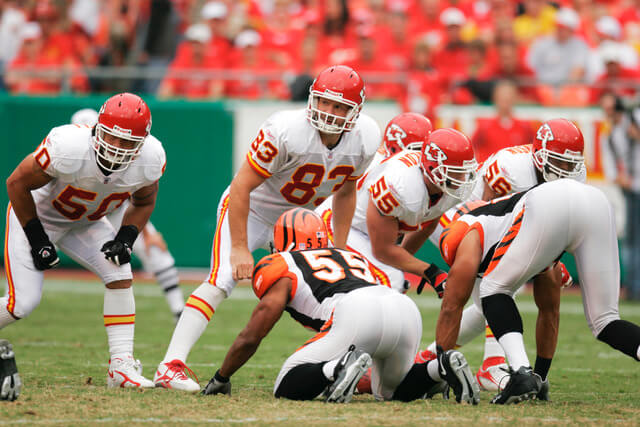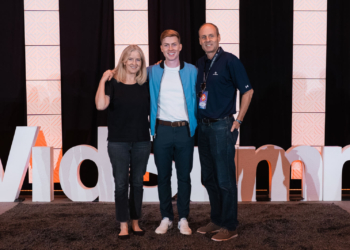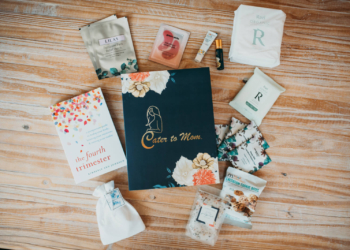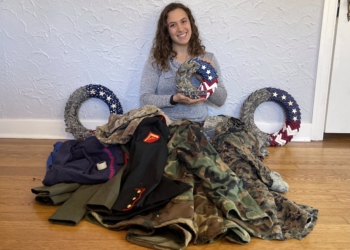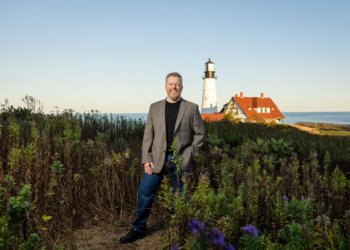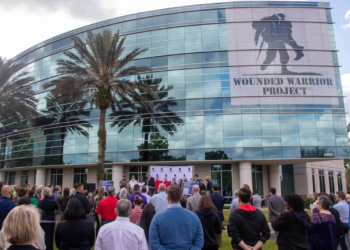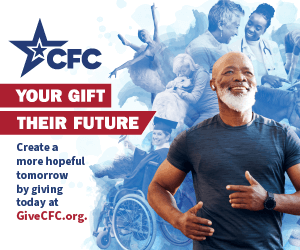
A former NFL player is helping connect veterans to equine therapy through nonprofit support.
War Horses for Veterans, a foundation outside of Kansas City, Missouri, provides horsemanship clinics to combat veterans and first responders from around the nation. Kendall Gammon, who spent 15 years in the NFL, began raising funds for the organization after seeing the impact the programs were having on attendees.
“They (horses) sense how you are and what you’re wanting. When you get close to a horse, they pair to your heartbeat,” said Gammon, who mentors and coaches the veterans and first responders attending the War Horses program. “And horses are known for being very therapeutic animals in all kinds of different settings.”
But convincing veterans that equine therapy is beneficial isn’t an easy sell. Though it’s becoming easier. War Horses’ unique approach and its efficacy have overcome many challenges and objections.
“Well, first, and foremost, therapeutic programs don’t always appeal to the veterans or first responders,” Gammon said. “And often, not until they reach a breaking point. So, that’s one of the many reasons that War Horses has developed programs that just don’t look or feel like traditional therapy.”
Gammon, a former NFL long snapper who last played with the Kansas City Chiefs, said the therapy uses effective communication techniques.
“It provides the use of verbal and nonverbal communication techniques and the participants are able to use this both in their personal and professional lives.”
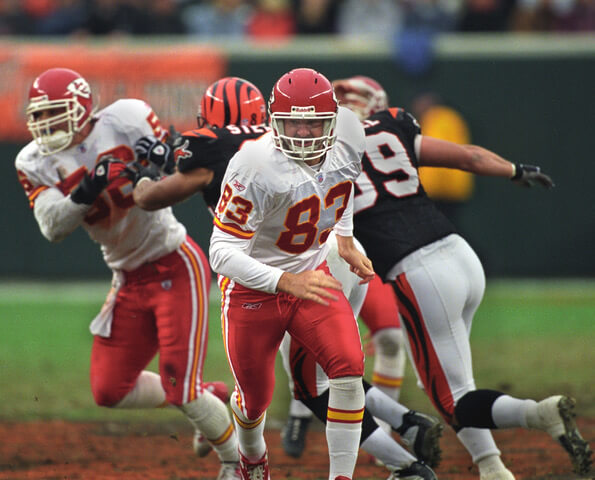
Gammon said he had a bit of trouble finding himself after leaving the NFL. There was parental emotional and physical abuse along with contemplating suicide throughout a challenging childhood and he was a high performer who had much of his life planned before his football days came to a conclusion. He found himself and a purpose: Speaking to groups about mental health and mindset. Gammon hooked up with War Horses through a friend who said he wouldn’t believe what the organization was doing in the way of therapy. He eventually visited them and was struck by the therapy.
“And before I left that day — I think it was a Navy SEALs group that they had in — they said, do you want to speak to the guys on Saturday? Because what you talk about is very similar to, is very parallel to, what we do here in terms of mental health and everything. And from then on, every group that has come in, I’ve spoken to.”
The program groups are small, four or five, to ensure that the quality of the therapy isn’t compromised. The former football player addresses and talks with the attendees early in the five-day program and is involved in the after-lunch and evening group sessions, allowing him the opportunity to connect and establish a relationship with the program participants.
“And, you know, I might just pair off and walk around with one guy and talk a little bit and just kind of compare stories.”
First responders and veterans are introduced to the horses in the round pen. And generally they’ll get on bareback after a day and then transition to a saddle. By the end of the week they’re roping.
“And they may go on a trail ride if they’ve gotten proficient enough in the riding side of things during the week, which oftentimes they have,” Gammon said. “And Andy Brown, our founder, takes great pride in being able to take them out for two and a half, three hours.”
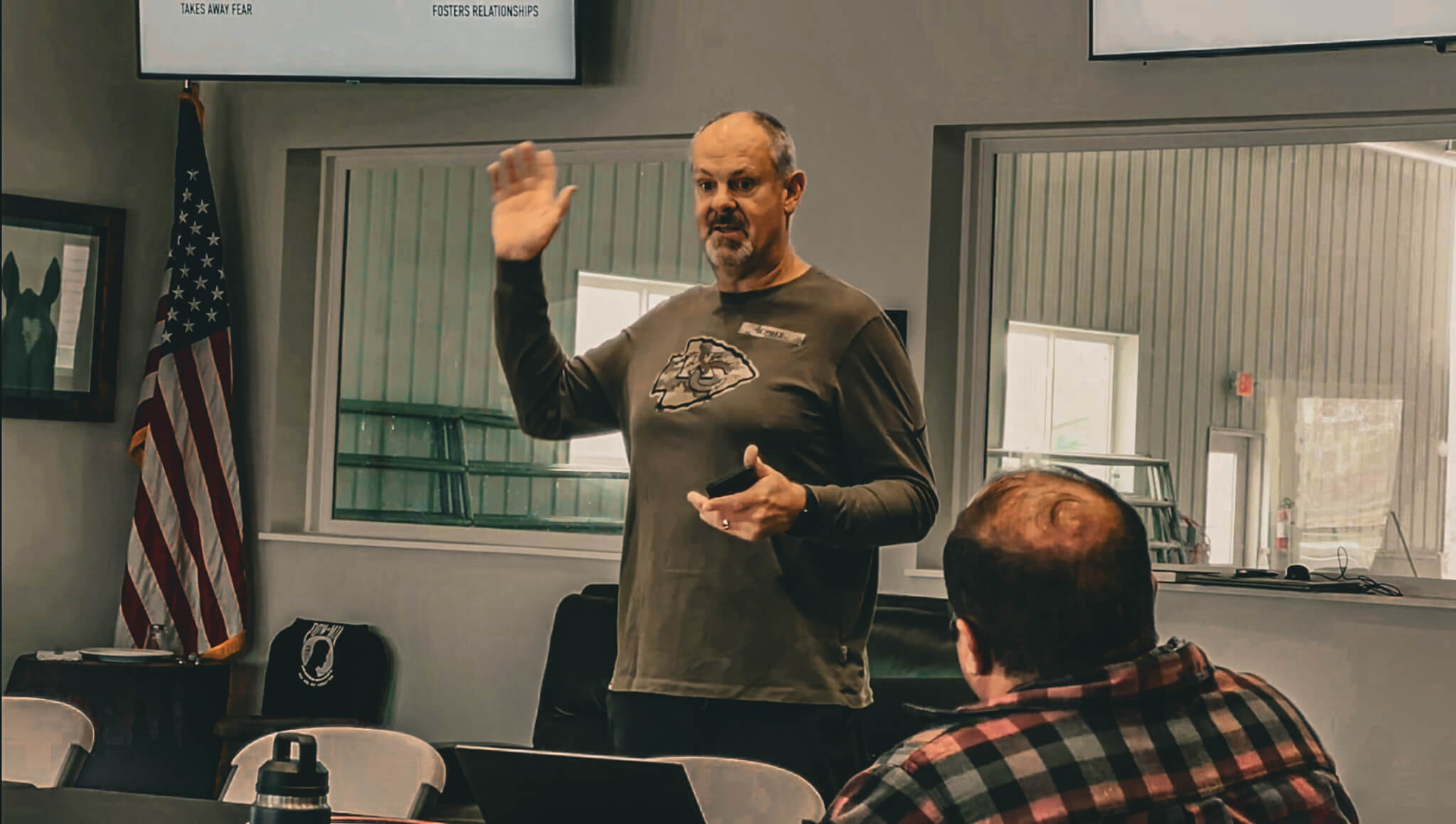
However, the key to the program is bringing these first responders and veterans — who are high performers struggling with PTSD or other mental and emotional issues — around highly attuned 1000-pound horses that they can’t control.
“And they have to learn to communicate with [them] because the horses reflect back who we are and how we are to them,” Gammon said. “So if we’re uptight and our heart beats fast and we’re nervous … So we learn breathing techniques. We learn how to control our heartbeat the best we can.”
The attendees learn how to communicate with the horses and understand their personalities but tend to gravitate toward a specific horse as the week goes on.
Gammon shared that they had one veteran who was a pretty tough dude and one who couldn’t relinquish control. His horse had other ideas. The veteran came upon the decline of a steep hill on the trail ride and had no idea how he could negotiate his way downward.
“And he was telling me first hand, ‘Kendall, I was scared. I didn’t know what to do.’”
The veteran finally gave control to the horse.
“What he did was he learned to give control to somebody else and understand that he couldn’t do everything all by himself. And he said that was really an epiphany for him in his life of understanding. He can’t always control everything.”
Gammon said the trust and symbiotic relationships created with the horses help first responders and veterans build or rebuild foundational skills in their communication, self-awareness and goal development. And that’s really the point of War Horses for Veterans.
“Those things come from getting out there and understanding and kind of make sense of things.”


